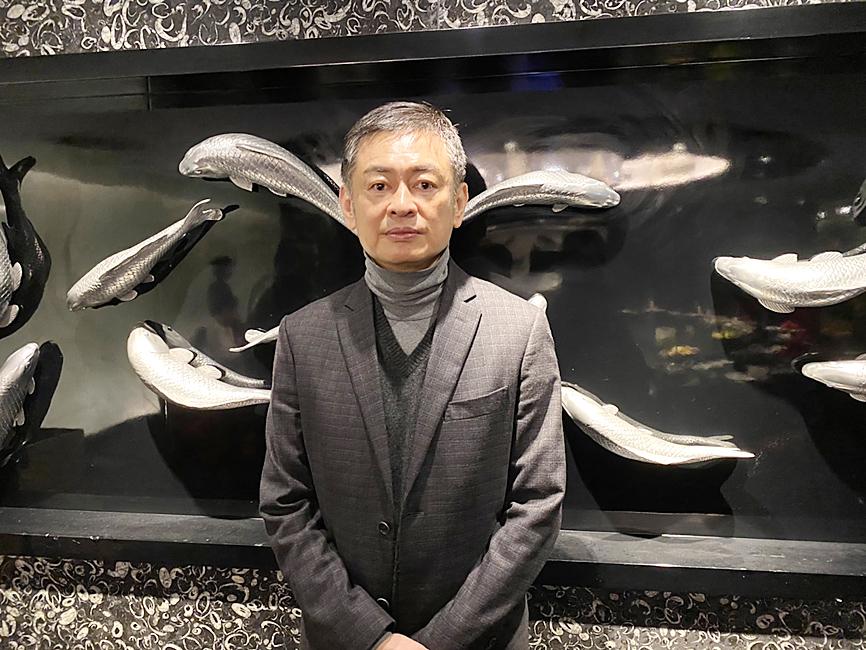Largan Precision Co (大立光), the nation’s biggest supplier of camera lenses, has settled a lengthy litigation battle with smaller rival Ability Opto-Electronics Technology Co (先進光電), according to statements that the companies filed with the Taiwanese Stock Exchange yesterday.
“We have signed a confidential settlement agreement,” Largan said in its statement. “Per the agreement, we will withdraw all litigation against Ability.”
Details of the settlement are not to be disclosed to protect the privacy of individuals involved, the Taichung-based firm added.

Photo: CNA
In 2012 and 2013, Largan sued Ability for allegedly stealing trade secrets.
In 2017, the Intellectual Property Court ruled in Largan’s favor, ordering Ability to pay NT$1.52 billion (US$53.76 million at the current exchange rate) in compensation.
The court’s ruling was upheld on Jan. 28.
Largan hotly pursued the litigation, even requesting the court for the provisional seizure of Ability property on Tuesday last week.
In 2013, Chinese-language magazine Business reported that Largan saw defending its “more than 500” pieces of intellectual property as key to maintaining its position as No. 1 in Taiwan’s opto-electronics market.
Four engineers left Largan for positions at Ability and started filing patents related to production automation that Largan alleged infringed on its intellectual property, leading to the lawsuit.
Over the years, Largan has also sued Samsung Electronics Co, Newmax Technology Co (新鉅科) and HP Inc for patent infringement. Largan settled out of court with all parties, except for HP.
News of the settlement caused the price of Ability shares to jump 10 percent, the maximum daily increase, to NT$42.15.
The price of Largan shares initially dipped NT$65 before recovering and ending the trading day at NT$3,360, slightly lower than the opening price of NT$3,375.
Separately, Largan yesterday posted consolidated revenue of NT$3.21 billion for last month, down 12.44 percent from NT$3.67 billion in February last year.
That represented a monthly decline of 30 percent from NT$4.61 billion in January, as the Lunar New Year holiday reduced the number of working days.

South Korea’s equity benchmark yesterday crossed a new milestone just a month after surpassing the once-unthinkable 5,000 mark as surging global memory demand powers the country’s biggest chipmakers. The KOSPI advanced as much as 2.6 percent to a record 6,123, with Samsung Electronics Co and SK Hynix Inc each gaining more than 2 percent. With the benchmark now up 45 percent this year, South Korea’s stock market capitalization has also moved past France’s, following last month’s overtaking of Germany’s. Long overlooked by foreign funds, despite being undervalued, South Korean stocks have now emerged as clear winners in the global market. The so-called “artificial intelligence

‘SEISMIC SHIFT’: The researcher forecast there would be about 1.1 billion mobile shipments this year, down from 1.26 billion the prior year and erasing years of gains The global smartphone market is expected to contract 12.9 percent this year due to the unprecedented memorychip shortage, marking “a crisis like no other,” researcher International Data Corp (IDC) said. The new forecast, a dramatic revision down from earlier estimates, gives the latest accounting of the ongoing memory crunch that is affecting every corner of the electronics industry. The demand for advanced memory to power artificial intelligence (AI) tasks has drained global supply until well into next year and jeopardizes the business model of many smartphone makers. IDC forecast about 1.1 billion mobile shipments this year, down from 1.26 billion the prior

Chinese artificial intelligence (AI) start-up DeepSeek’s (深度求索) latest AI model, set to be released as soon as next week, was trained on Nvidia Corp’s most advanced AI chip, the Blackwell, a senior official of US President Donald Trump’s administration said on Monday, in what could represent a violation of US export controls. The US believes DeepSeek will remove the technical indicators that might reveal its use of American AI chips, the official said, adding that the Blackwells are likely clustered at its data center in Inner Mongolia, an autonomous region of China. The person declined to say how the US government received

People stand in a Pokemon store in Tokyo on Thursday. One of the world highest-grossing franchises is celebrated its 30th anniversary yesterday.